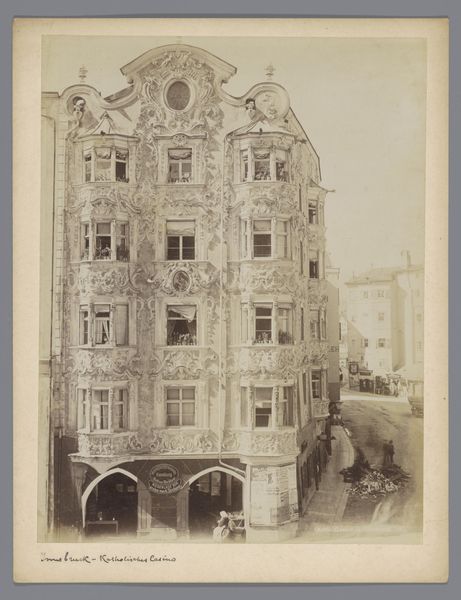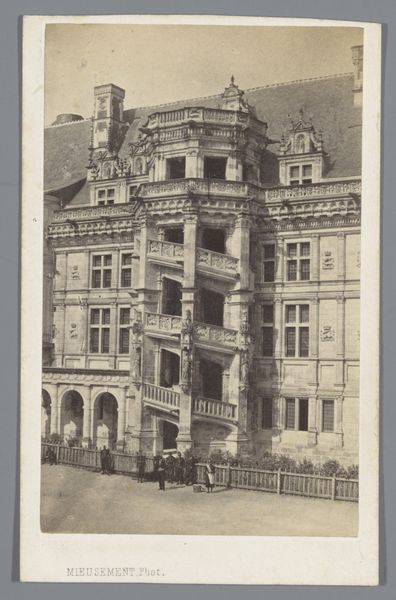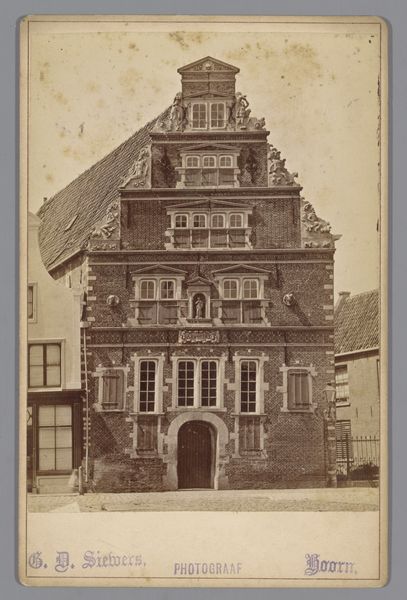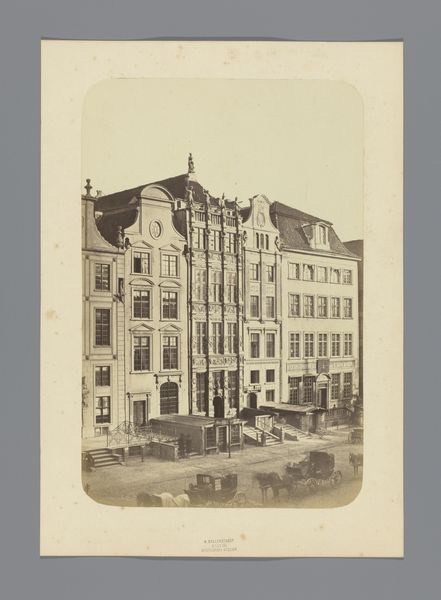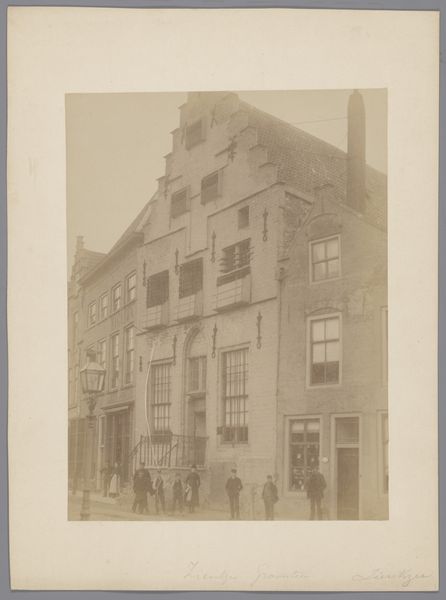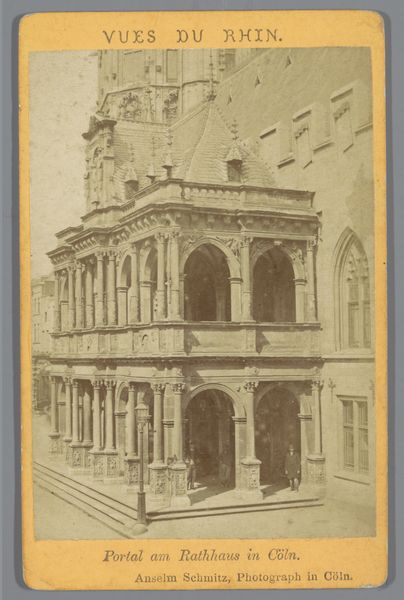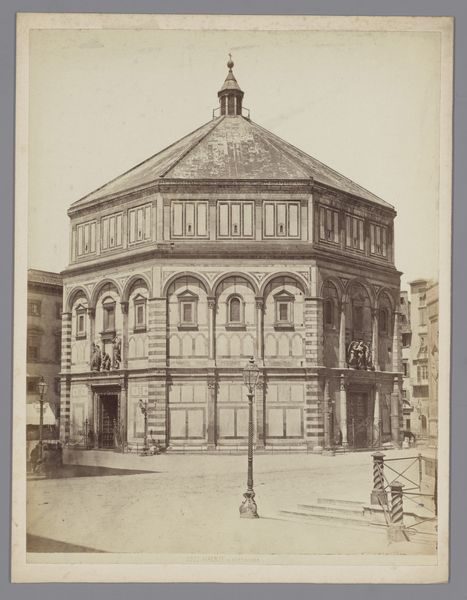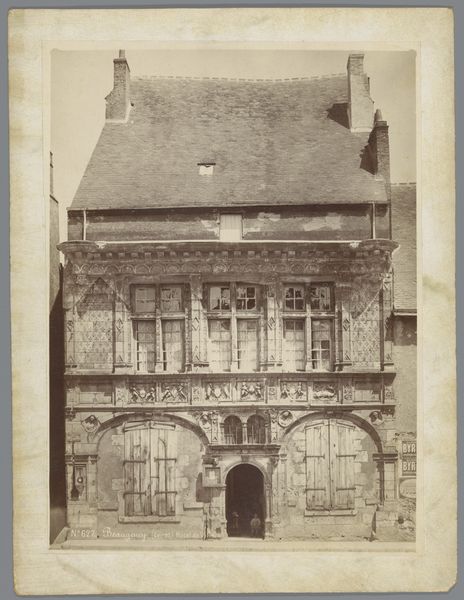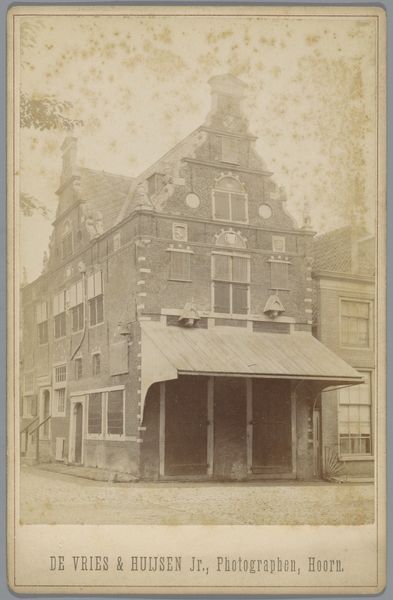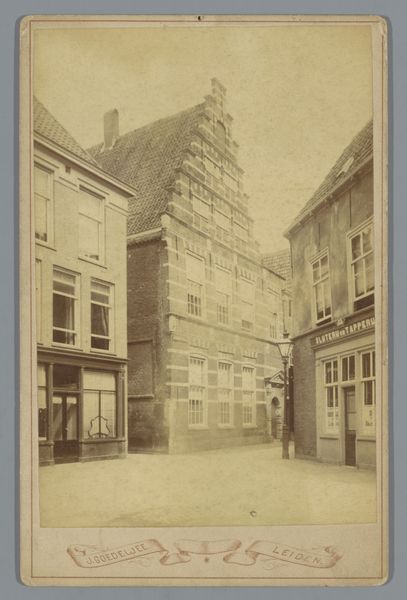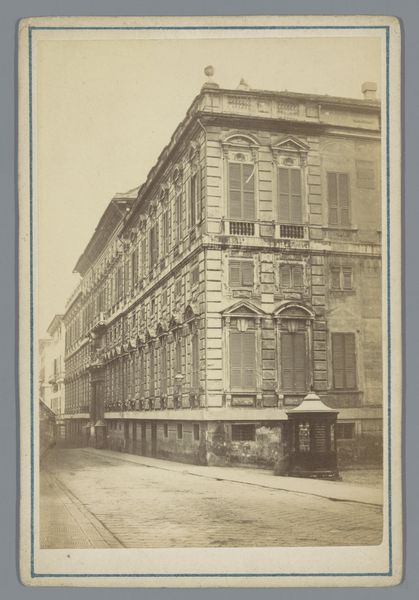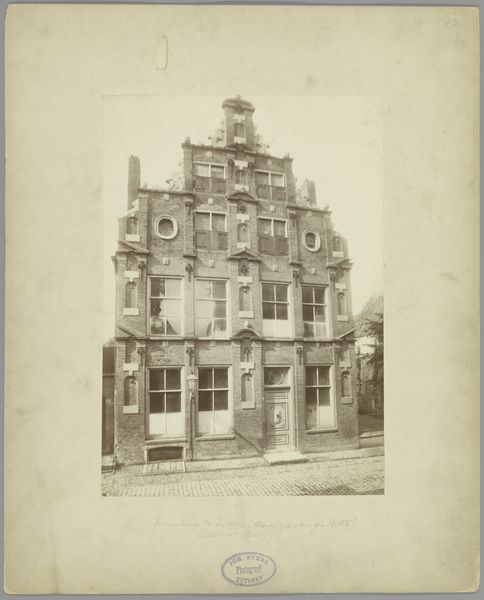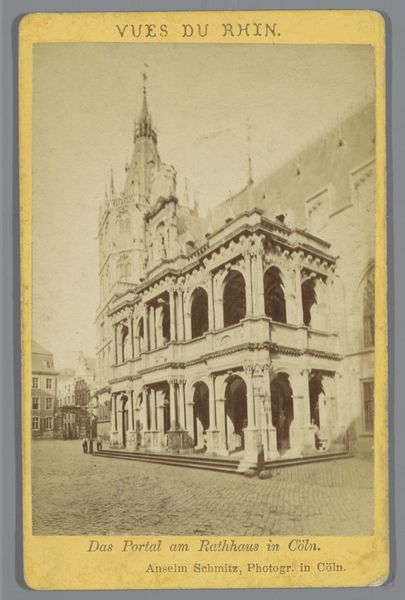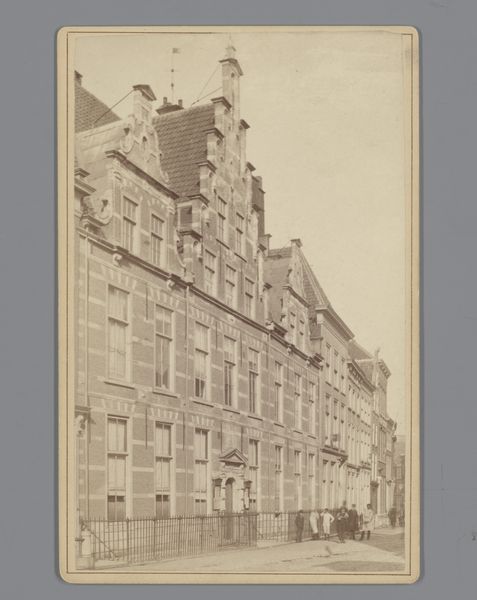
print, photography, architecture
#
16_19th-century
# print
#
photography
#
cityscape
#
architecture
#
realism
Dimensions: height 168 mm, width 108 mm
Copyright: Rijks Museum: Open Domain
Editor: Here we have "View of the Town Hall of Konstanz," a photograph from 1870-71 by German Wolf. I’m really struck by how the elaborate painted facade contrasts with the seemingly simple photographic technique. It feels very documentarian. What do you see in this piece? Curator: Well, it speaks volumes about the relationship between power, representation, and civic identity in the late 19th century. Photography at this time became a tool, like earlier paintings, to both record and to construct specific narratives about places and their importance. Who do you think this building represented, and to whom? Editor: I guess… the local government? And the citizens of Konstanz, maybe showing their pride in their city. Curator: Exactly. Consider, though, who controlled representation during this period. Who had the resources to commission photography? Whose stories were considered worthy of documenting? This image reinforces a particular narrative, likely one that upholds the existing power structure, wouldn't you say? And how does it relate to Germany’s growth after the Franco-Prussian war? Editor: Hmm, that’s a good point. The Town Hall almost becomes a symbol of civic triumph and the emergence of Imperial Germany after victory against France. This image seems like an official portrait, meant to project strength and order. The clear lines and realism really emphasize that. I never thought about photography having an agenda like painting. Curator: Absolutely. The choice to document architecture, particularly structures like town halls, can be read as an intentional act to legitimize specific social and political ideologies of the time. The rigid and centralized perspectives serve to validate power structures through a certain controlled gaze. Editor: It’s really eye-opening to consider the photographer's role beyond just capturing an image. Curator: Indeed! Every photograph has its own complex context that must be interpreted!
Comments
No comments
Be the first to comment and join the conversation on the ultimate creative platform.
